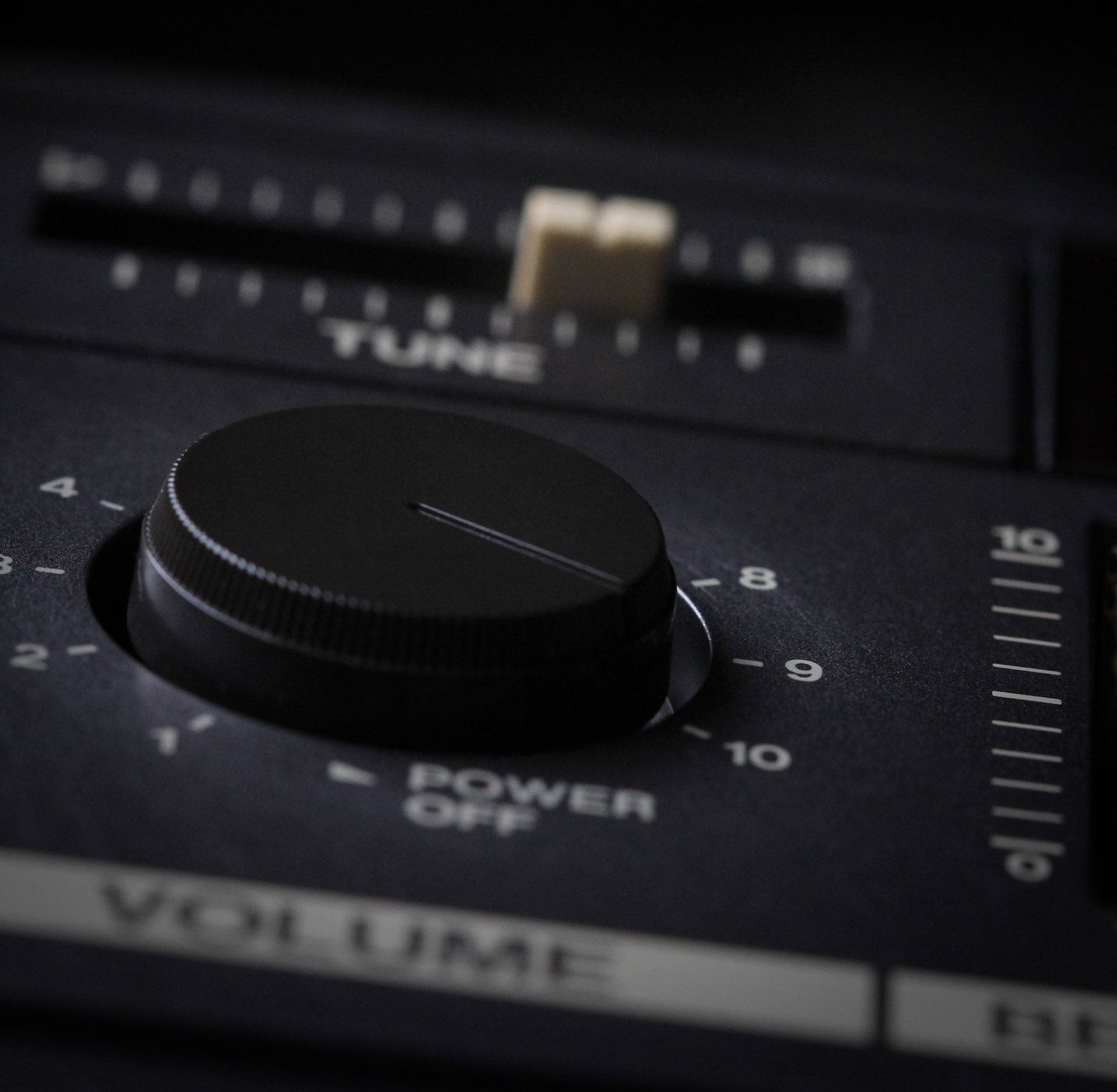Key takeaways
- Hyperacusis is an extreme sensitivity to sound where noises that seem to be at a normal level to other people can cause pain or discomfort
- It’s relatively uncommon, affecting around 1 in every 50,000 people
- Living with hyperacusis can be difficult, as people may experience anxiety, depression and isolation
- There’s no cure for the condition, but there are several treatments that can help to ensure your hyperacusis has less of an impact on your life
If you’re living with sensitivity to sound that’s so extreme it’s causing you discomfort or physical pain, you could have hyperacusis. It’s a condition that can deeply affect your everyday life – but thankfully, there are things you can do to ease your symptoms. Keep reading to find out more about what hyperacusis is, what causes it and how you can deal with it.
What is hyperacusis?
The term hyperacusis comes from the Ancient Greek for ‘excessive’ and ‘hearing’. It is a condition in which people have an extreme sensitivity to sound. If you have hyperacusis, you’ll find it difficult to tolerate sounds that other people take for granted. There are many different types of noise sensitivities, and sensitive hearing is pretty common, making it hard to focus in a noisy office environment or difficult to engage in conversations when there’s background noise.
While noise sensitivity can be extremely difficult to live with, hyperacusis is an even more extreme version. Seemingly normal, everyday sounds can seem unbearably loud to people with hyperacusis. This can include things like:
- Running water
- Rustling papers
- People talking
- A dog barking
- A dishwasher or washing machine mid-cycle
- A radio playing in the background
- A vacuum cleaner
Hyperacusis can make these sounds unpleasant to hear, and for some people, it also causes physical discomfort or even pain. You can experience it in one ear or both ears.
Hyperacusis affects around 1 in every 50,000 people, and not much is known about it. Because it’s such an uncommon condition, hyperacusis definitions vary. One researcher, Dr Richard Tyler, has categorized hyperacusis into four different subtypes: loudness, annoyance, fear, and pain:
- Loudness hyperacusis is the definition most people use when talking about the condition. It’s when sounds that seem normal to other people seem very loud to someone with hyperacusis.
- Annoyance hyperacusis is when someone has a negative emotional reaction to sounds, similar to misophonia.
- Fear hyperacusis causes avoidant behavior, when someone with hyperacusis has noise sensitivity anxiety. This can mean they avoid going places or become anxious when anticipating hearing triggering noises.
- Pain hyperacusis is when someone with the condition experiences pain upon hearing low-level sounds that aren’t usually problematic for people.
Dr Tyler has said that there’s a lot of crossover between the four types, and having one kind of hyperacusis may lead to developing another. He said:
“If you experience loudness hyperacusis, emotional consequences may follow, leading to stress and annoyance, which eventually lead to fear of going to events and socializing. Pain is a little more complicated because it consists of both a fundamental attribute and an emotional consequence.”
Hyperacusis symptoms
The most common symptoms of hyperacusis are sensitivity to everyday sounds and ear pain or discomfort upon hearing these noises. The pain associated with hyperacusis is sometimes called noxacusis.
This pain can be very severe, and is usually described as a stabbing or burning pain that's comparable to a root canal or nerve pain. In other words: it’s extremely painful, and can be extremely debilitating.
Additionally, people with hyperacusis may experience other distressing symptoms, such as:
- Anxiety
- Depression
- Irritability
- Difficulty in everyday environments
- Feelings of annoyance
- Panic attacks
- A feeling of fullness in the ears, similar to being on a plane
- Loss of balance
- Seizures
People with hyperacusis may avoid social situations or, in severe cases, avoid leaving the house at all in order to avoid exposure to noises that may cause them annoyance, discomfort or pain. That can lead to isolation and mental health issues.
Symptoms of hyperacusis may be worse if someone with hyperacusis is particularly tired or stressed.
What causes hyperacusis?
Researchers are still trying to fully understand the causes of hyperacusis. Although hyperacusis causes discomfort and pain when you hear noises, it’s commonly agreed that it’s not a hearing problem, but instead is to do with how your brain perceives sounds.
We detect sounds as vibrations, and when you have hyperacusis, your brain may perceive certain vibrations to be louder than they actually are. That’s why, when hearing low-level sounds, someone with hyperacusis reacts very differently to them than another person without hyperacusis who hears the same sounds.
In other cases, hyperacusis is a result of an accident or injury, or is a symptom of hearing loss. Other possible causes of hyperacusis include:
- Facial nerve damage: The facial nerve controls the stapedius muscle that is responsible for the regulation of sound intensity in the ear. Some people with conditions like Bell’s palsy, Lyme disease and Ramsay Hunt syndrome, which are associated with nerve damage to the face, also have hyperacusis.
- Exposure to loud noises: Some people develop hyperacusis as a result of either long-term or sudden exposure to loud noises. That means people who work in settings which expose them to sustained loud noises, like construction workers and musicians, are at risk of developing hyperacusis, as well as people who develop it after hearing a loud sound, like a gunshot or fireworks.
- Head or ear injury: For some people, hyperacusis develops after a blow to the head or another type of head injury.
- Hearing loss: Hyperacusis can develop alongside hearing loss, usually age-related hearing loss.
- Tinnitus: One study found that the occurrence of hyperacusis with severe tinnitus is as high as 80%.
- Facial or jaw surgery: If the ear nerve or facial nerve is damaged during surgery, you’re at risk of developing hyperacusis.
- Medication and recreational drugs: Some medications, like cancer drugs, can cause hearing damage and hyperacusis, and some recreational drugs like LSD also increase the risk.
- Temporomandibular joint (TMJ) disorder: If you have issues with your TMJ, you may be at risk of developing hyperacusis.
- Viral infections: Ear infections that affect the inner ear or facial nerve may cause hyperacusis.
- Autism: Research shows that hyperacusis is highly prevalent in people with autism, with one study finding that 46% of children with hyperacusis also had autism.
- Autoimmune conditions: People with autoimmune conditions like lupus can develop hearing and balance issues, including hyperacusis, due to inner ear issues.
- Emotional stress and mental health issues: High levels of stress, as well as conditions like post-traumatic stress disorder (PTSD) and depression may cause hyperacusis and noise sensitivity.
Other conditions associated with hyperacusis include:
- Migraines
- Tay-Sachs disease
- Epilepsy
- Myalgic encephalomyelitis or also called chronic fatigue syndrome (ME/CFS)
- Meniere’s disease
- Down syndrome
- Williams syndrome
Common hyperacusis treatments
Although there isn’t a cure for the condition, there are several treatments for hyperacusis which can help you to reduce the impact the symptoms have on your life and help you to live a life that’s less stressful. The treatment will depend on the cause of your hyperacusis, but your doctor will be able to recommend which one suits you best. Some of the options include:
Cognitive behavioral therapy
CBT may help people with hyperacusis to manage their responses to sounds that make them feel uncomfortable. When someone with hyperacusis hears a noise that they find distressing or painful, they may experience negative thoughts. This can make the condition worse, either causing them to avoid noisy situations in the future, or intensifying their symptoms, creating a vicious cycle.
CBT helps to break this cycle by helping people with hyperacusis to explore what negative thoughts they have related to sounds, and attempting to change these into more positive or neutral thoughts. This can be particularly helpful if you have fear hyperacusis, as it can help to challenge your avoidant behavior and make you less anxious about going into situations where you might experience noises that cause you discomfort.
Tinnitus retraining therapy
Another treatment option that may work for some people with hyperacusis is tinnitus retraining therapy (TRT). This treatment combines sound therapy with counseling to help train your brain to ignore the sounds that cause you discomfort or pain. Over time, it helps you to build more tolerance to these sounds, as your brain places less emphasis on them.
Sound therapy
Sound therapy, sometimes called sound desensitization, exposes people with hyperacusis to sounds with the aim of increasing their tolerance over time. It’s done using a noise generator, which is usually a small device that looks like a hearing aid and is worn on both ears, if you have hyperacusis on both sides, or just one ear.
It plays static sound, similar to white noise, and is at a very low level to begin with. It then gradually increases to louder sounds over time as you build up more tolerance. It usually takes between six months and a year for the therapy to have an impact on your hyperacusis.
Lifestyle management
Since hyperacusis can get worse when you’re stressed, your doctor may recommend that you try to stay healthy and minimize stress to reduce the effect your hyperacusis has on your life. You could try things like:
- Getting regular exercise
- Meditation
- Ensuring you get enough sleep
- Regular massage
- Yoga
- Maintain a healthy work life balance
Surgery
A type of surgery called ‘round and oval window reinforcement’ may be an option for some people with the condition, if no other hyperacusis treatments work. This procedure involves moving tissue behind the ear to support the hearing bones, with the aim to reduce your ears’ sensitivity to sound.
Is there anything you should avoid when you have hyper-sensitive hearing?
When someone has hyperacusis or similar conditions like tinnitus, it can be tempting to try to block out all sounds by wearing earplugs or noise canceling headphones constantly.
However, this approach isn’t advised by doctors – even though it might seem like common sense! That’s because when you avoid sounds, your environment becomes much quieter, which can make you even more sensitive to sounds.
If you have hyperacusis, it’s suggested that you don’t cut yourself off from all sounds – but you should still protect your ears against hearing damage in particularly loud environments. This is particularly important as some cases of hyperacusis are linked to hearing loss, so damaging your hearing even more could make your hyperacusis even worse.
Wearing earplugs like Loop Experience when you’re at music concerts or in other loud environments can help you to protect your hearing, as they offer up to 18 decibels of noise reduction. But they don’t completely block sounds out – so you’re still exposed to noise, just at a lower level than usual.
Loop Earplugs
Experience 2
Share
Living with hyperacusis
When you have an extreme sensitivity to sound, it can make life difficult. Even sounds that seem at a normal level to everyone else can be uncomfortable or painful for you. It’s tough, we understand that.
But it will get better. From treatments like CBT and sound therapy to keeping yourself healthy and stress-free, there are plenty of ways to minimize the impact your hyperacusis has on your day-to-day life. It might just take a little time to get to a place where you feel comfortable getting out and about with lots of noises around you.
In the meantime, it can help to talk to people. Make sure your friends and family understand how you feel, and ways they can support you. And seek out like minded people who know what it feels like to live with hyperacusis. Why not try our Loop Community? There, you’ll find plenty of fun challenges to distract you, and lots of useful content to help you deal with your noise sensitivity.

Your questions answered by Dr. Kathleen Wallace
You've sent us all of your questions on hearing and noise sensitivity.We've bundled them all in an interview with Dr....

What Is Misophonia: Symptoms and Causes Explained
What is misophonia? Learn more about what misophonia means, the symptoms of this condition and what can trigger it.

How to prevent tinnitus and protect your ears
Prevention is the best cure, right? And when it comes to tinnitus, properly protecting your ears can go a long way to...




























